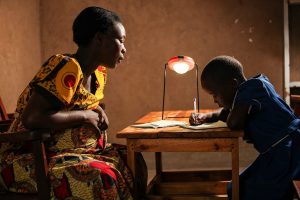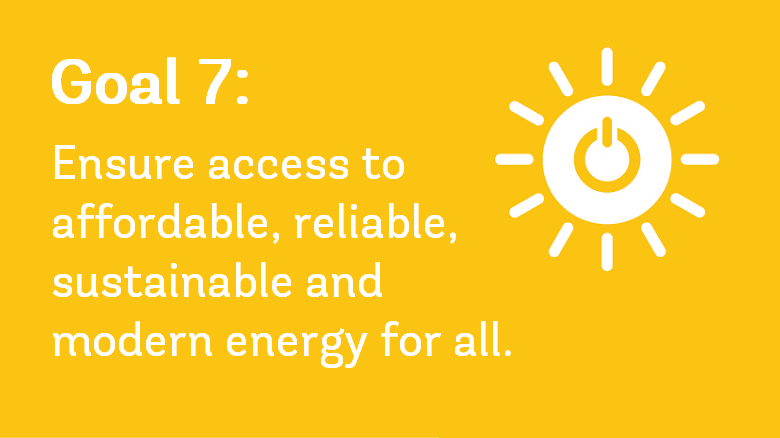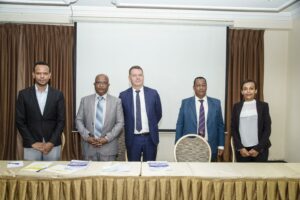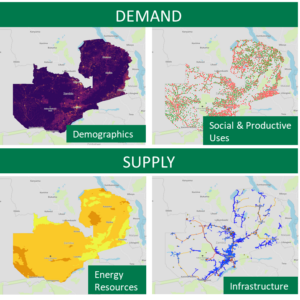Written by Esther Kahinga, Knowledge Manager – ACE TAF
SDG 17 on partnerships for the goals could be the goal that will make the greatest contribution to the achievement of all the other 16 goals. The saying ‘there is strength in unity’ means more to us now in the face of the global Covid-19 pandemic and the possible erosion of some of the gains that had been made in access to energy through off-grid systems.
Now more than ever stakeholders working to increase access to modern energy must work together to reduce duplication of efforts and support governments to achieve their electrification goals. Governments on the other hand need to provide leadership and on-going support for stakeholder coordination at national level so that ‘the sum of the total is greater than its parts.’
For instance, the Ministry of Energy in Zambia established the Zambia Off-Grid Task Force (ZOGTF) in 2018. The ZOGTF brings together government, development partners, private sector, civil society and academia so that they can accelerate progress on off-grid electrification in the country. The Task Force serves as the focal point for coordination, provides oversight for initiatives designed to raise the profile of the off-grid sector in Zambia, and oversees energy access especially in rural areas, in line with government objectives.
Sabera Khan, a member of ZOGTF, has witnessed first-hand the power of a coordinated approach to addressing electrification barriers. She says, ‘Before the ZOGTF was formed land rights for mini-grids were accessed from three different points; the chief, the municipal council and the Ministry of lands office. It was so complex that investors doing due diligence for projects almost gave up. This challenge was addressed through the Task Force.’
Coordination mechanisms like ZOGTF offer benefits not only to the private sector but also governments. In Sierra Leone, the Off-Grid Working Group (OGWG) brought a critical balance to the issue of tax exemptions. The Working Group resolved to only have tax exemptions for solar systems that meet internationally recognised quality standards, in effect protecting consumers from poor quality systems. The OGWG now reviews all applications for tax exemptions and only approves those that meet the stipulated criteria.
Countries like Kenya, Mozambique, Nigeria and Uganda have initiatives by development partners that are scaling off-grid systems as part of government efforts to achieve universal electrification. Sometimes, these initiatives operate in silos leading to duplication of efforts and concentration of support in one geographical area while others are left out. With a functional coordination mechanism, governments will not only address these challenges but also stay informed on the progress made by the different partners and quantify their contribution to national electrification goals.

Additionally, with off-grid electrification greater impact will be achieved when there is coordination with the agriculture, health, education and industrialization sectors. Yet, players in these other sectors are not fully informed on how off-grid systems can contribute to some of the development goals they aim to achieve. It will be essential for the coordination mechanism to find a way of reaching out to players in these other sectors from time to time.
But there are some emerging challenges like ensuring the sustainability of these coordination mechanisms. There are cases where the coordination mechanism has stopped functioning when the programme that supported its establishment ended. That is why government needs to provide on-going support for the coordination mechanism so that even if the membership changes, government’s commitment keeps the mechanism going. It is probably a high time existing coordination mechanisms considered setting up a foundation fund that members can contribute to, and that will cushion the group during lean times.
For now, strengthening coordination remains a timely and powerful strategy that governments, development partners, private sector, investors and civil society should embrace to step-up efforts towards universal access to electricity by 2030. In the words of William Brent, Chief Campaign Officer at Power for All, ‘SDG will not be achieved without greater coordination.’
Read more on how ACE TAF is strengthening coordination here










